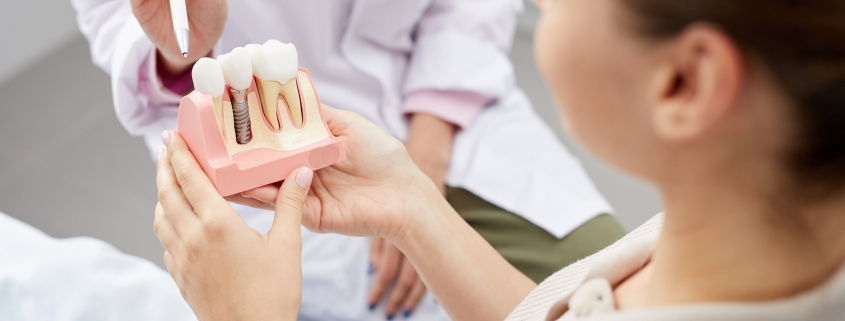Fixed and movable implants
There are many reasons why a person may lose their teeth, from severe tooth decay to serious infections and…. .
When you think of dentures, you probably think of false teeth that are placed in a glass of water at night. Some prostheses are removable because they have to be washed in clean, special solutions, but because of their applications, they have gained a lot of fans.
Here we fully explain the fixed and movable implants, the advantages and features of each of these two models.
Fixed and movable implants
As you know, one of the alternatives to missing teeth is the use of dental implants. The implant is placed in the empty space between the teeth and does not cause any problems for the adjacent teeth.
Natural teeth are made up of two parts, the crown and the root. The crown is the visible part of the tooth through which we can eat and talk, but the root of the tooth is the part that connects the tooth to the jawbone. When a person loses a tooth, dentists insert a titanium or zirconium screw into the tooth that acts as a natural root, and fixed and removable dentures are used to replace the crown.
There are two common types of dentures known as fixed and removable dentures. To use either of these two types of prostheses, you need to get complete and sufficient information and decide by comparing them and the differences in their performance and function, and most importantly with the diagnosis of a dentist.
What is a removable implant?
For many people, the question may be, what are the reasons for using dentures or dental implants? The most important reason that patients go to medical clinics to fill their gaps is that the lack of regular teeth and gaps in the mouth affects the beauty of the face and many patients lose their self-confidence. They lose and try to hide their teeth.
Tooth decay creates a feeling of premature aging in people, which can have an adverse effect on their mood. Implant-based removable dentures are an alternative to missing teeth, and people can remove them from their mouths when they do not need them, such as at bedtime, and rinse them with a special solution. .
What is a Fixed Implant?
Fixed implant tooth implantation is one of the best alternatives for missing teeth, which largely solves the problems of dentures for patients. Fixed implants have bases that are located in the jawbone that act as the root of the tooth. After a while, the base of the fixed implant welds well into the jawbone and between the gums, and finally the crown of the fixed implant, also called the prosthesis, is placed on it.
The difference between fixed and movable implants
To compare two fixed and movable implants, it can be said that a fixed implant is better in terms of strength. Fixed prostheses can prevent these problems when a person’s teeth are lost, the lips and cheeks are sagging, and the jaw bones are weakened.
To learn more about the differences between fixed and removable implants, let’s look at the benefits and features of each:
Fixed implant benefits
Appearance of teeth: Naturally filling the gaps of missing teeth, in the most natural way possible, has a great impact on the beauty and shape of the face, especially your smile.
Feeling comfortable using the implant: After a short time that has passed since the implant was placed in your tooth, it will get used to it like any natural tooth without any discomfort and will not bother you.
Convenience in speech: Fixed tooth implants do not cause any problems in your speech and do not loosen like dentures and will not move in your mouth.
Ease of chewing food: People who have used dentures are aware of the problems that occur when chewing food. If you use fixed dental implants instead of dentures, you will find that chewing food with implants is no different from your normal teeth.
High strength and durability: If taken care of and observed daily hygiene, implanted teeth are highly durable and maintain their efficiency for several years. Easy hygiene: You can apply the same process of hygiene and care you have for your natural teeth to implanted teeth, such as brushing, flossing, mouth washing (consult a specialist).

